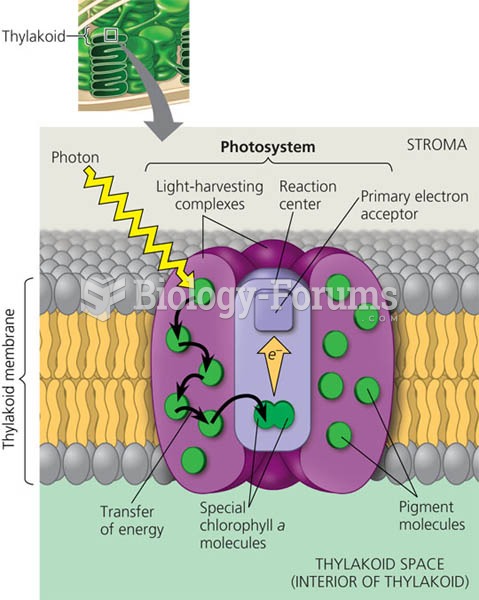|
|
|
Asthma cases in Americans are about 75% higher today than they were in 1980.
Astigmatism is the most common vision problem. It may accompany nearsightedness or farsightedness. It is usually caused by an irregularly shaped cornea, but sometimes it is the result of an irregularly shaped lens. Either type can be corrected by eyeglasses, contact lenses, or refractive surgery.
Nitroglycerin is used to alleviate various heart-related conditions, and it is also the chief component of dynamite (but mixed in a solid clay base to stabilize it).
The most destructive flu epidemic of all times in recorded history occurred in 1918, with approximately 20 million deaths worldwide.
Approximately 500,000 babies are born each year in the United States to teenage mothers.
 Fights for dominance are normally brief, and sometimes merely displaying dominant gestures without p
Fights for dominance are normally brief, and sometimes merely displaying dominant gestures without p
 Blue light is scattered more than other wavelengths by the gases in the atmosphere, giving the Earth
Blue light is scattered more than other wavelengths by the gases in the atmosphere, giving the Earth





